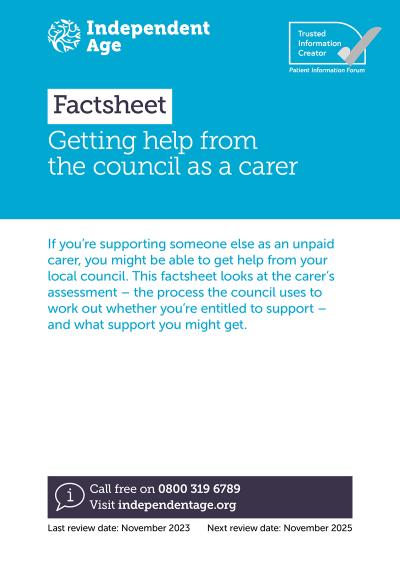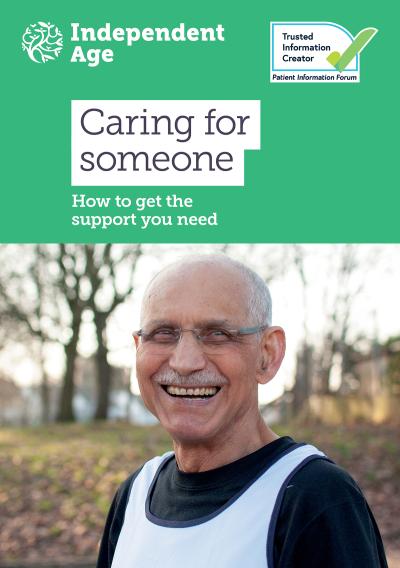Related publications

Getting help from the council as a carer

Caring for someone else can come with challenges at times. It may be difficult to ask for help if you need it, but it’s important to find out what support you can get from family, friends or elsewhere.
Relationship dynamics can be complex. We may make assumptions about each other and what our different roles should be. Different opinions can cause tensions when organising care or making plans with or for an older friend or relative. However, it’s helpful to talk about how you can share caregiving responsibilities or get extra support if you need it.
There can be many reasons why this is a hard conversation to have. Lack of time, living far away or just not wanting to face the situation can stop you talking. Other issues might include:
On the plus side, if you have these discussions you can:
If you start talking early – and talk often – these conversations can become a normal part of discussion. It’s also a good idea to involve other family members or friends early and talk about what you can each do to help. You can always change the caregiving arrangements later if necessary.
If you’d like someone else to be more involved, because you’re providing the majority of care or think your friend or relative needs more support, ask directly for help. Remember:
It’s important to keep the lines of communication open. For example, you could share updates on medication, hospital appointments or care plans. Keeping others updated could help them be more involved. But make sure you ask the person you’re caring for about who they want to share their information with first.
Be honest about what you can do and what you're prepared to do. It may be that paying for care is the best option. Don’t feel guilty – you’re only human and there are limits to what you can do. Paying for care may help with the practical parts of caring for someone, and let you focus on other areas like emotional support.
If another person involved in caregiving is making decisions you don’t agree with, you could bring this up sensitively with them and offer to help. They may be under pressure. You could also suggest involving a third party, such as a GP or social worker.
It's a good idea to look into what support might be available for your friend or relative, as well as for yourself if you're a carer. You could consider:
A good place to start is to get a care needs assessment for your friend or relative. You can contact their local council to request one with their permission, or they can request one themselves. This can give you an objective basis for any decision-making.
You may also be able to get your own carer’s assessment to look at your needs as a carer.
If they agree, you could check if the person you're caring for can get any benefits. You could also check for yourself if you are a carer.
As a first step, look at our webpages about:
If you need advice or would like a benefits check, call our Helpline.
If your friend or relative has a long-term condition, they may be able to get support from charities and organisations that deal with their condition.
Other options you could consider include:
Some of these services might be provided by the council after having a care needs assessment, and they may charge for them. You or your friend or relative may also be able to get these services privately. See our Paying for care webpages for more information.
It might also help you and your fellow carers to talk to your friend or relative about getting a power of attorney in place while they still have mental capacity.
Sometimes if there are disputes around caring for someone, bringing in an outsider can help. This could be a GP, solicitor, financial adviser, clergy member or a social worker. They may be able to offer impartial advice, guidance or expert knowledge that could help resolve the disagreement.

If you are a carer and need more support, contact the Carers Trust to find out about local services.
For more information about the topics covered in the page – such as Carer's Allowance and living well with long-term health conditions – see our guides and factsheets.
Call our Helpline to arrange to speak to one of our advisers.